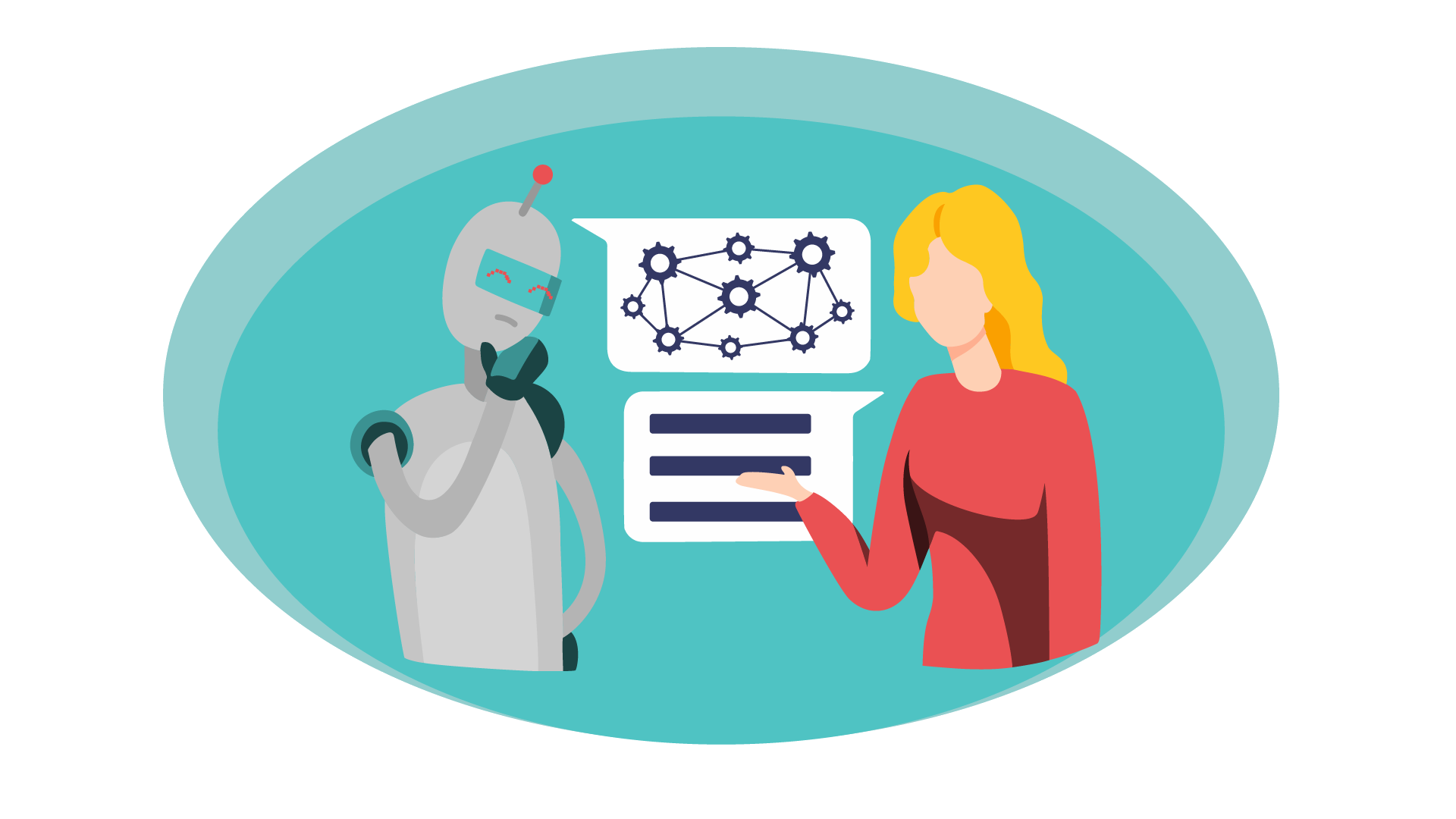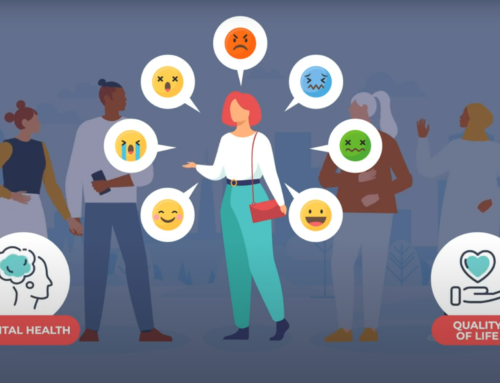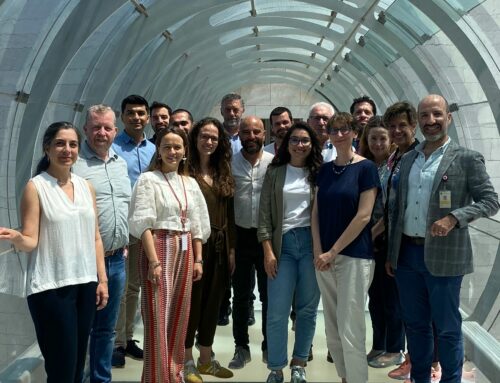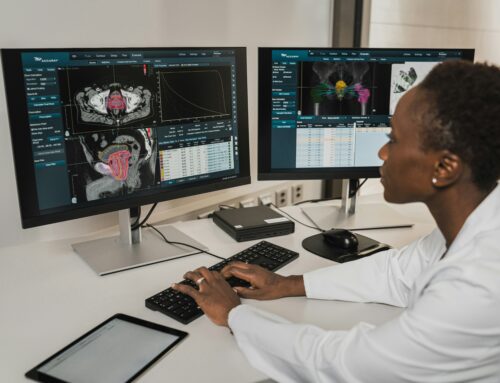Artificial intelligence (AI) and related technologies, such as Machine Learning (ML) and Natural Language Processing (NLP), are becoming more established in the business community as well as in society as a whole. In particular, the healthcare sector is now starting to see the usefulness of their application within health settings. Through these technologies, we have the potential to transform many aspects of patient care and wellbeing. For this reason, within the FAITH project we are looking to see how the use of these technologies can provide early indications of mental disorder or downward trajectories in the quality of life for cancer survivors.
Artificial Intelligence
AI is a wide-ranging branch of computer science concerned with building smart machines and algorithms capable of performing tasks that typically require human intelligence. It is an interdisciplinary science with multiple approaches. Its basis lies in the principle that we can define human intelligence in a way that a machine can easily mimic, then executing tasks from the most simple to more complex ones. Today, advancements in machine learning are creating a paradigm shift in virtually every sector of the tech industry.
Algorithms play a very important part in the structure of artificial intelligence. AI uses simple algorithms for the simpler tasks, while more complex ones help frame strong artificial intelligence. The goals of artificial intelligence include learning, reasoning, and perception. The ideal characteristic of AI is its ability to rationalize and take actions that have the best chance of achieving a specific goal.
Current methodologies use a series of questionnaires and answers to identify depression. Within the FAITH project, instead, we will be using AI Machine Learning algorithms to analyse depression markers against previous learnings. Then, using trained systems we will interpret the data, to provide early warning signs against downward trajectories in these markers.
Machine Learning
Machine Learning is a subfield of Artificial Intelligence. It focuses on the use of algorithms to find patterns in large amounts of data, leading to interesting achievements. For example, algorithms can accurately predict what could occur next. Also, finding a pattern match can help them make a decision, such as providing recommendations in streaming sites, search engines, or interactive voice services. In FAITH, we will be using their ability to identify patterns to infer downward trajectories in mental wellbeing.
There are some differences between regular computer software and machine learning. The key distinction is that in regular software the coder has written specific instructions on how a computer must perform. Instead, machine-learning models are taught how to reliably make informed decisions, based on being trained on large amounts of data.
There are several kinds of machine learning. For example, in supervised learning the trainer provides rules that make connections between inputs and outputs. In unsupervised learning, instead, the trainer provides inputs, and the computer discovers patterns. Finally, in reinforcement learning, the trainer continuously provides input, and the system constantly improves based on these inputs.
Given the vast amount of data that has recently become available, and the advancement of supercomputer technologies, the use of machine learning is becoming more prevalent, with ever more accurate predictions.
Natural Language Processing
“Language is a city to the building of which every human being brought a stone”.
When Ralph Waldo Emerson said this in 1875, it was a realisation of the importance of language in terms of our development as a species. Even 135 years later, it is as profound as ever. However, today the stones are no longer brought by human beings alone.
Natural Language Processing (NLP) is a branch of AI concerned with allowing computers to understand, interpret, and manipulate human language. There are over a trillion pages of information on the Web, almost all of it in natural language. Considering that nearly everything we observe, learn, and create is either represented or communicated through language, the significance of this field is hard to overstate.
Although it has been around since the 1950s, NLP has made a major leap in the past decade largely thanks to the advent of Deep Learning (DL). Just two technologies in US history have had uptake by one in four Americans within two years: the iPhone in 2007, and Alexa in 2016. This should not be surprising: humans engage far more naturally through speaking than they do by typing on a keyboard. Projections anticipate that this year, 75 percent of American homes will have at least one voice personal assistant.
AI and NLP in FAITH
The impact of NLP on healthcare in particular is poised to be huge. For example, Natural Language Processing can allow us to make inferences about peoples’ mental states from what they write. These inferences can help predict potential issues such as depression, suicidality, and anxiety. If healthcare practitioners can monitor and detect them, then new intervention pathways can open up.
A powerful combination can form between Natural Language Processing and voice analysis. The latter consists of learning from a user’s particular vocal traits, and classifying changes in their different features. Changes in pitch, loudness, speaking rate or articulation, for example, could indicate negative trends in a user’s mental health.
In the FAITH project, such monitoring of changes in speech and in the associated emotion over time will provide Personalised Emotion Inference, allowing us to deduce downward trajectories in personal mental wellbeing through voice variance with the help of our machine learning algorithms.
Intelligent healthcare applications
With the recent advances in Artificial Intelligence, and Natural Language Processing in particular, we are in the position to enable truly “intelligent” healthcare applications. And in one part of the FAITH project we intend to do exactly so. Using these technologies, we can link conversational systems to healthcare problems as a means of monitoring disease trajectories and general mental wellbeing. However, there is so much still to do. We are very excited in FAITH with the research that is ahead of us over the coming years.
Authors: Gary McManus and Philip O’Brien of the Waterford Institute of Technology (Waterford, Ireland).




